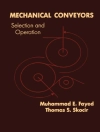- Considers the role of fertiliser use in agriculture as a major contributor to the imbalance of the global nitrogen cycle
- Reviews the effectiveness of inorganic nitrogen fertilisers and organic sources of nitrogen in optimising nitrogen use efficiency
- Highlights recent developments in the use of enhanced efficiency nitrogen fertilisers to reduce nitrous oxide emissions
Table of Content
Part 1 Understanding nitrogen cycling in crop production
- 1.Advances in understanding nitrogen cycling in soil: Samantha Earl-Goulet, Claudia Wagner-Riddle and Laura Van Eerd, University of Guelph, Canada; and Kate Congreves, University of Saskatchewan, Canada
- 2.The role of ammonium transport proteins in improving nitrogen use efficiency in crop production: Muhammad K. Uddin, Francine Perrine-Walker and Brent N. Kaiser, University of Sydney, Australia
- 3.Molecular interventions for improving crop nitrogen use efficiency: trends, opportunities and challenges in rice: Dinesh Kumar Jaiswal and Nandula Raghuram, Centre for Sustainable Nitrogen and Nutrient Management, University School of Biotechnology, Guru Gobind Singh Indraprastha University, India
- 4.Improving the effective use of nitrogen on major field crops across the globe: a new paradigm: Ignacio A. Ciampitti, Kansas State University, USA; and Gilles Lemaire, Honorary Director of Research – INRAE-Lusignan, France
Part 2 Monitoring and optimising nitrogen use
- 5.Developments in proximal sensors to detect crop nitrogen status: Brenda S. Tubana and Daniel Forestieri, Louisiana State University, USA
- 6.Synchronizing nitrogen fertilizer application to crop nitrogen needs: Bijay-Singh, Punjab Agricultural University, India; R. J. Buresh, Independent Researcher, Mankato, USA; and S. Peng, Huazhong Agricultural University, China
- 7.Developments in the use of enhanced efficiency nitrogen fertilizers: Shu Kee Lam, Baobao Pan, Xia Liang, Arvin R. Mosier and Deli Chen, The University of Melbourne, Australia
- 8.Banding nitrogen fertilisers and the implications for enhanced efficiency fertiliser technology: Chelsea K. Janke, The University of Queensland, Australia; Cristina Martinez, The University of Queensland, Australia and The Grains Research and Development Corporation, Australia; Yash Dang and Michael J. Bell, The University of Queensland, Australia
- 9.Dynamic models for addressing complexities of nitrogen management in maize production: Harold M. van Es and Jeff Melkonian, Cornell University, USA; and Rebecca Marjerison, Yara North America, USA
- 10.The economics of nitrogen in farming systems and beyond: David J. Pannell and Asjad Sheikh, University of Western Australia, Australia
Part 3 Organic sources of nitrogen
- 11.Optimizing livestock manure as a source of nitrogen and other nutrients: Samantha Glaze-Corcoran and Masoud Hashemi, University of Massachusetts Amherst, USA
- 12.Characterizing soil nitrogen availability to improve nitrogen fertilizer recommendations: Alan J. Franzluebbers, USDA – Agricultural Research Service, USA
- 13.Service crops as a source of nitrogen in temperate Europe: Iris Vogeler, Aarhus University, Denmark and Christian-Albrechts University, Germany; Peter Sørensen and Ingrid K. Thomsen, Aarhus University, Denmark; and Friedhelm Taube, Christian-Albrechts University, Germany
- 14.The role of crop rotations in optimizing nitrogen use efficiency in organic farming: Lucie Chmelíková and Kurt-Jürgen Hülsbergen, Technical University of Munich, Germany; and Sebastian Wolfrum, Technical University of Munich, Germany, and Bavarian State Research Center for Agriculture, Germany
About the author
David Pannell is Professor of Agricultural and Resource Economics, University of Western Australia; Director, Co-Centre for Environmental Economics and Policy; ARC Federation Fellow (2007-2012); Distinguished Fellow and past president of the Australian Agricultural and Resource Economics Society; Fellow of the Academy of Social Sciences in Australia; and a Director of Natural Decisions Pty Ltd. His research includes the economics of land, water and nature conservation; environmental policy; farmer adoption of conservation practices; risk; and economics of farming systems. David has won awards for his research in the USA, Australia, Canada and the UK, including the 2009 Eureka Prize for Interdisciplinary Research.












